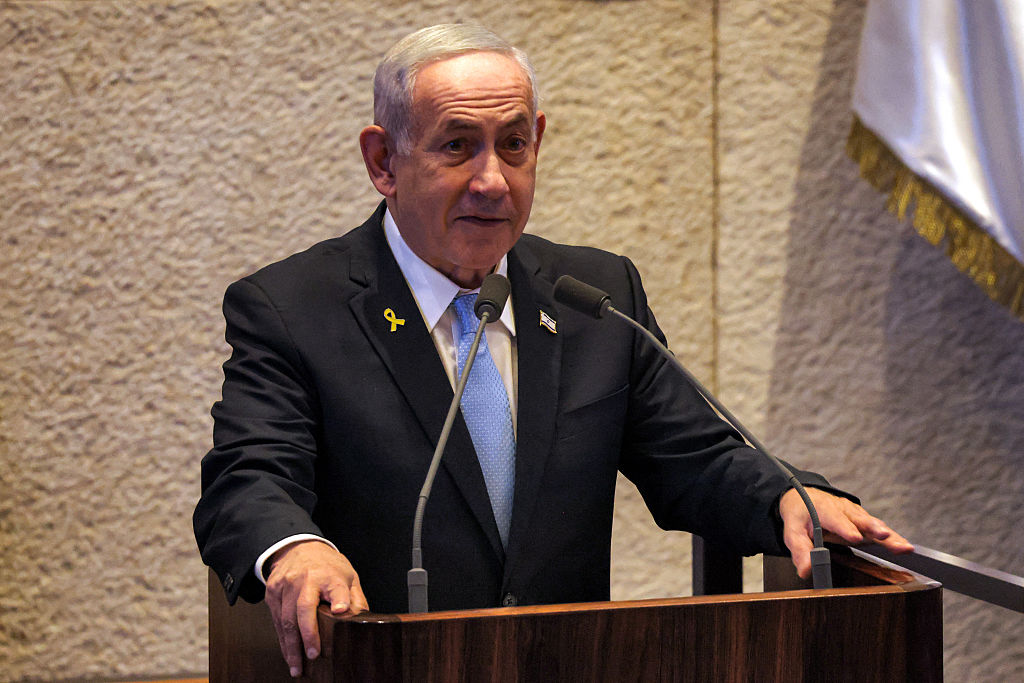If the Israeli public had expected Benjamin Netanyahu to take responsibility for failing to foresee Hamas’s attack on October 7, for years of neglecting the safety and security of the towns near the border with Gaza and for allowing Hamas to build a substantial armed force — they would have been disappointed by his speech on Wednesday night.
Netanyahu, in a typical manner, did not accept responsibility. Unlike the IDF’s chief of the general staff, Herzi Halvi, and the head of Israel’s general security service Shin Bet, Ronen Bar, both of whom have publicly admitted to failures for predict the attack, Netanyahu declared that an investigation into the events will take place after the war is over. Everyone will be answerable, “including myself,” he added. Unsurprisingly, reports in the media suggest that Netanyahu is already trying to swerve any responsibility away from himself, and towards the IDF. However, this failure expands beyond the intelligence services and army’s ability to foresee Hamas’s attack. Netanyahu should be answerable for years of policies that have culminated in the events on October 7.
In a reference to a ground operation in Gaza, Netanyahu claimed that one will take place, but only when the time is right. He refused to explain what factors will determine as to when, claiming that secrecy is important for keeping troops safe. It is likely that one of the main factors involves negotiations to free additional hostages.
Four female hostages have already been released by Hamas, thanks to Qatar’s involvement in the negotiations. Some 210 hostages remain, including elderly, women and children. Israel, and countries whose citizens are among those captured, including the US, UK and France, would like negotiations to continue. It is assumed that once a ground operation starts, chances of hostages returning safely will drop dramatically.
Although Netanyahu insisted that the Israeli cabinet alone will determine the timing of a ground operation, the Wall Street Journal reported that the US has asked Israel to delay a ground invasion to allow American forces to deploy air defense systems to the region. As tensions in the Middle East are rising, including against American forces in Iraq and Syria, a ground invasion could cause a regional increase in hostilities that the Americans want to be prepared for.
Many Israelis looked at Joe Biden for answers and comfort
An IDF entry into Gaza, with the aim of — as suggested by Netanyahu in his speech — destroying Hamas militarily and politically, could bring Iran to ignite a broader war against Israel using its proxies in Lebanon, Syria and Yemen. Hamas is an important asset for Iran in its war against Israel. Iran has spent years cultivating Hamas and would not like to have it destroyed. If the war expands beyond Gaza, American troops could become targets too.
In his speech, Netanyahu was also trying to swerve away from the public’s complaints about government’s departments inability to provide Israelis with the support they needed since the start of the war. Israeli civil society has taken over many services since October 7. An army of volunteers has been looking after those evacuated from the towns attacked by Hamas, giving emotional support for anyone in need, gathering information on hostages and providing food and equipment for reservists, while the government has been largely absent.
For many Israelis, much of Netanyahu’s speech was predictable. He hasn’t been perceived as a strong leader since the start of the war. Instead, many Israelis looked at Joe Biden for answers and comfort. In trying to restore his image as “Mr. Security” and increase the public’s trust in his government, Netanyahu failed miserably.
This article was originally published on The Spectator’s UK website.


























Leave a Reply